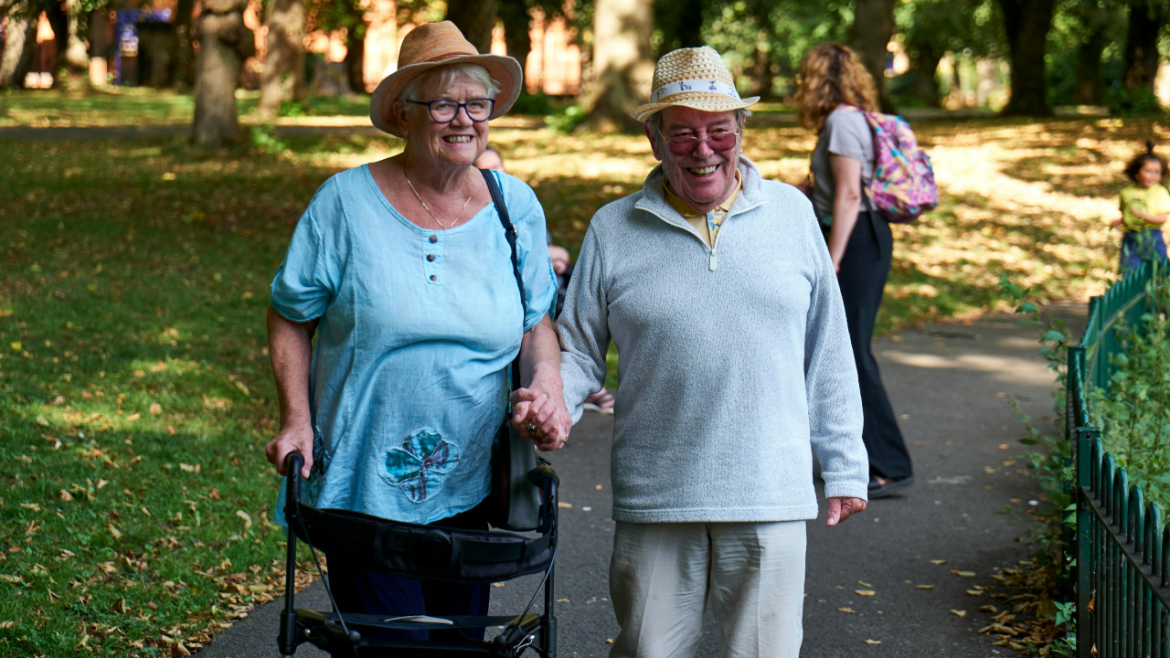Did you know that Leading Edge Senior Care has a Dementia Support Group? We meet monthly in Mesa. For more details <click here>
As seniors navigate the golden years of their lives, maintaining physical activity becomes increasingly crucial for overall health and well-being. Among the plethora of activities available, walking stands out as a simple yet effective exercise, offering numerous benefits for seniors. Let’s delve into how taking walks can significantly enhance the lives of older adults.
Enhancing Physical Health
Regular walks contribute significantly to improving seniors’ physical health. Walking is a low-impact aerobic exercise that helps strengthen the heart and cardiovascular system. By increasing heart rate and circulation, it lowers the risk of heart disease, stroke, and high blood pressure. Additionally, walking aids in maintaining joint flexibility and bone density, reducing the risk of osteoporosis and arthritis.
Improving Mobility and Balance
For seniors, maintaining mobility and balance is essential to preserving independence and preventing falls. Walking regularly helps strengthen muscles, improve coordination, and enhance balance, reducing the likelihood of falls and related injuries. Furthermore, walking on varied terrain or engaging in activities like tai chi during walks can further enhance balance and stability.
Boosting Mental Well-Being
Physical activity has a profound impact on mental health, and walking is no exception. Taking walks outdoors exposes seniors to natural sunlight, which boosts mood and promotes the production of vitamin D. Moreover, walking serves as an opportunity for relaxation and stress relief, reducing feelings of anxiety, depression, and isolation commonly experienced by older adults.
Fostering Social Connections
Walking provides an excellent opportunity for seniors to socialize and connect with others. Joining walking groups or walking with friends and family encourages camaraderie, provides emotional support, and fosters a sense of belonging. Social interaction during walks can lead to meaningful conversations, laughter, and shared experiences, enriching seniors’ social lives.
Enhancing Cognitive Function
Engaging in regular physical activity, including walking, has been linked to improved cognitive function and a reduced risk of cognitive decline in seniors. Walking stimulates blood flow to the brain, which can enhance memory, concentration, and overall cognitive abilities. Additionally, the mental stimulation provided by outdoor walks, such as observing nature or interacting with the environment, can further support brain health.
Promoting Quality Sleep
Many seniors struggle with sleep-related issues, such as insomnia or poor sleep quality. Regular physical activity, including walking, can help regulate sleep patterns and improve sleep quality. The exertion and exposure to natural light during walks contribute to better sleep hygiene, leading to more restful and rejuvenating sleep for seniors.
Embracing a Holistic Approach to Well-Being
Incorporating walking into daily routines is a holistic approach to promoting overall well-being for seniors. It addresses physical, mental, and emotional aspects of health, offering a myriad of benefits that contribute to a higher quality of life. By making walking a regular habit, seniors can enjoy greater vitality, independence, and fulfillment as they age.
Conclusion
Taking walks is a simple yet powerful way for seniors to enhance their physical, mental, and emotional well-being. From improving cardiovascular health and mobility to boosting mood and fostering social connections, walking offers a multitude of benefits that positively impact every aspect of seniors’ lives. By embracing walking as a regular form of exercise, older adults can enjoy a healthier, happier, and more fulfilling lifestyle.

